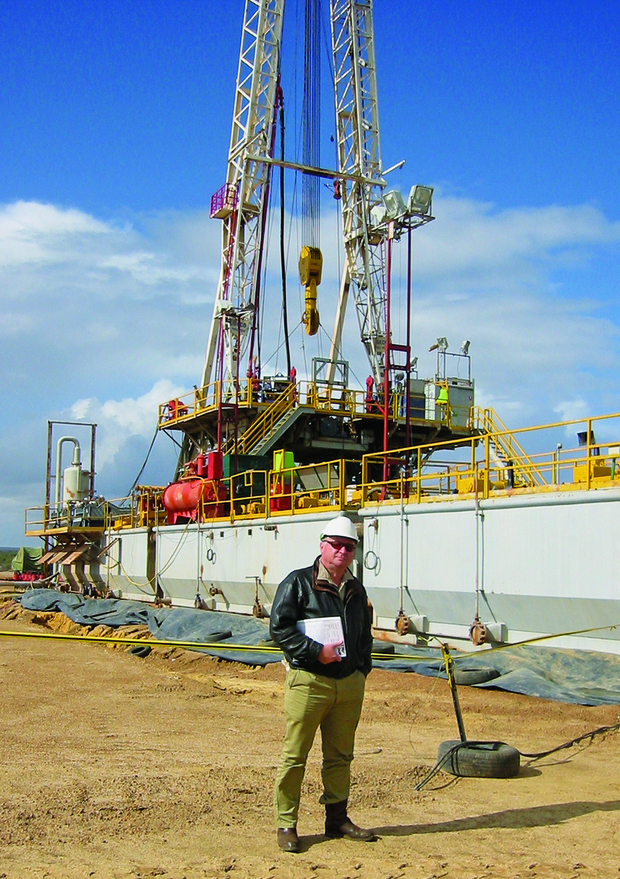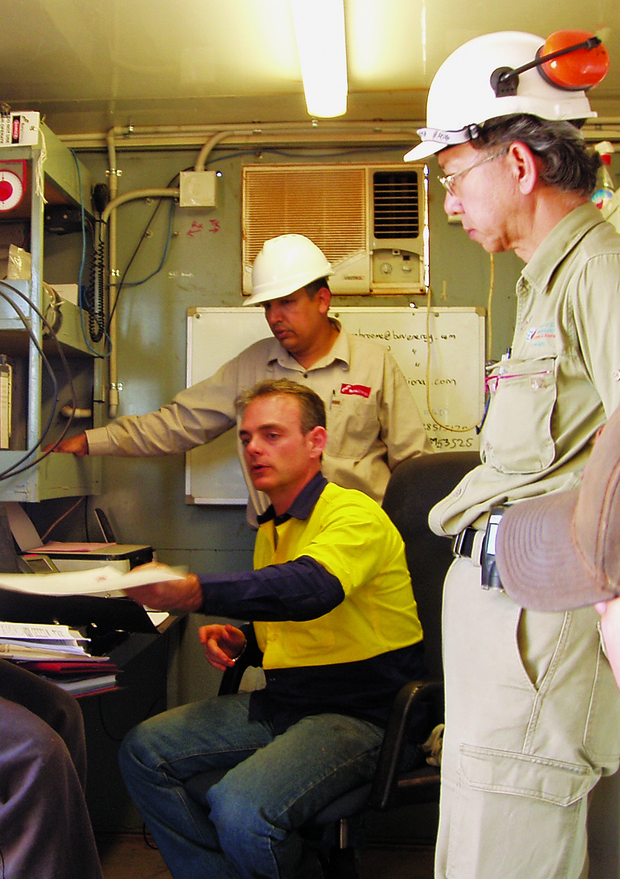Before exploration can begin

The Department of Mines, Industry Regulation and Safety (DMIRS) manages the release of land for oil and gas (petroleum) exploration through permits. The permit applications received from petroleum companies are assessed against their proposed work program, financial and technical abilities.
Companies can apply to conduct a survey over vacant land where little or no exploration has been undertaken using a Special Prospecting Authority. Companies can then apply for an exploration permit or a drilling reservation.
If a petroleum discovery is made the company can then apply for a retention lease or a production licence.
Before production can begin
DMP has the job of making sure Western Australia’s valuable oil and gas assets are managed safely and responsibly. This means:
- Overseeing the safety of exploration and production activities
- Protecting the environment, including groundwater
- Making sure the petroleum resource available is fully developed and managed against sound engineering standards
- Coordinating the assessment and approvals processes of other State Government agencies
- Providing information to people that might be affected by petroleum activities.
Before production can start, petroleum companies must prepare and submit the following plans to DMP for approval:
Safety plans: A petroleum company must prepare a safety plan for each stage of their petroleum project. These plans are assessed by DMIRS to make sure the activities will be undertaken safely as possible using high standard technology and processes.
The safety plans are checked by DMIRS and fixed if changes are needed.
Any accidents or near-misses must be reported to DMIRS as soon as they happen. An investigation into the incident and its causes must be undertaken by the petroleum company and supplied to DMIRS. If required, DMIRS can investigate an incident independently.
Environment plans: Protecting the environment is an important area of DMIRS regulation. Petroleum companies must submit a detailed environment plan, which describes the activities, management of environmental risks and details of consultation with people who will be affected by the activities.
A summary of the petroleum company’s Environment Plan is be made available through the Environmental Assessment and Regulatory System (EARS).
DMIRS and petroleum companies are committed to using high standards of engineering and production technology. DMIRS uses its extensive experience and technology networks to make sure the safest technical strategies for exploration and production are used. This includes well construction and testing, to make sure the risk of contamination of gas or groundwater supplies is very low.
During production

All of these rules are backed by regular field inspections, testing, reporting and auditing.
DMIRS inspectors are allowed to enter petroleum facilities to make inspections, interview people and gather evidence to make sure they are complying with regulations.
They undertake environmental and safety compliance audits of petroleum activities to make sure the operations are being undertaken as outlined in the petroleum company’s plans.
When petroleum companies are drilling a well, they must submit daily drilling reports, monthly production reports and reports upon completion of the well. These are reviewed by DMIRS during and after the drilling of a well.
When production is over
Petroleum companies must submit an abandonment program to DMIRS for assessment and approval. This program details the procedures involved in discontinuing a well and includes a description of the plugging and removal of the well head.
The petroleum company’s environmental plan includes details on the rehabilitation of the well site and associated access roads and fences. Landowners may request the company to leave the access roads for their use. The abandonment program also covers the removal of the petroleum facilities and environmental rehabilitation.
Key facts
- The Department of Mines, Industry Regulation and Safety regulations cover safety, environmental management, resource management and a wide range of community priorities.
- Petroleum companies in Western Australia must meet strict international and national engineering and operational standards.
- The State’s regulations give the public access to key information on petroleum projects.
For more information check out other information sheets in this series by visiting Native Title and Land Access (NTALA) or Telephone (08) 9222 3333
